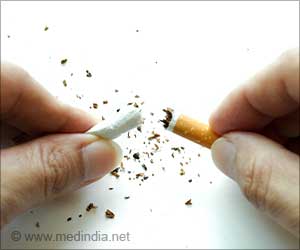The US Food and Drug Administration's notice to manufacturers of caffeinated alcoholic beverages comes in the backdrop of an exponential explosion in the consumption of energy drinks.
An exponential explosion in the consumption of caffeinated energy drinks seem to have prompted the US Food and Drug Administration to issue notices to nearly 30 manufacturers. It wants them to prove the safety of their products.
Of the combined use of caffeine and alcohol among U.S. college students in the few studies on this topic, the prevalence was as high as 26 percent, it said.Earlier this year a study by the Johns Hopkins University School of Medicine noted since the introduction of Red Bull in Austria in 1987 and in the United States in 1997, the energy drink market had grown exponentially and that hundreds of different brand were being marketed, with caffeine content ranging from a modest 50 mg to an alarming 505 mg per can or bottle.
“The absence of regulatory oversight has resulted in aggressive marketing of energy drinks, targeted primarily toward young males, for psychoactive, performance-enhancing and stimulant drug effects. There are increasing reports of caffeine intoxication from energy drinks, and it seems likely that problems with caffeine dependence and withdrawal will also increase. In children and adolescents who are not habitual caffeine users, vulnerability to caffeine intoxication may be markedly increased due to an absence of pharmacological tolerance. Genetic factors may also contribute to an individual's vulnerability to caffeine-related disorders including caffeine intoxication, dependence, and withdrawal. The combined use of caffeine and alcohol is increasing sharply, and studies suggest that such combined use may increase the rate of alcohol-related injury. Several studies suggest that energy drinks may serve as a gateway to other forms of drug dependence,” said the study that appeared in the journal Drug and Alcohol Dependence.
Under the Federal Food, Drug, and Cosmetic Act, a substance added intentionally to food (such as caffeine in alcoholic beverages) is deemed “unsafe” and is unlawful unless its particular use has been approved by FDA regulation, the substance is subject to a prior sanction, or the substance is Generally Recognized As Safe (GRAS). FDA has not approved the use of caffeine in alcoholic beverages and thus such beverages can be lawfully marketed only if their use is subject to a prior sanction or is GRAS. For a substance to be GRAS, there must be evidence of its safety at the levels used and a basis to conclude that this evidence is generally known and accepted by qualified experts.
The agency is now considering whether caffeine can lawfully be added to alcoholic beverages. The FDA noted that it is unaware of the basis upon which manufacturers may have concluded that the use of caffeine in alcoholic beverages is GRAS or prior sanctioned. To date, the FDA has only approved caffeine as an additive for use in soft drinks in concentrations of no greater than 200 parts per million. It has not approved caffeine for use at any level in alcoholic beverages.
In response to the January study of the Johns Hopkins University, the American Beverage Association had said, “It's unfortunate that the authors of this article would attempt to lump all energy drinks together in a rhetorical attack when the facts of their review clearly distinguishes the mainstream responsible players from novelty companies seeking attention and increased sales based solely on extreme names and caffeine content.
“Their review confirms that the amount of caffeine in mainstream energy drinks is, in fact, moderate. As a comparison, energy drinks typically contain half the caffeine found in regular coffeehouse coffee…”
Advertisement
But apparently the FDA is not impressed. Hence the notice now.
Advertisement
Source-Medindia
GPL








